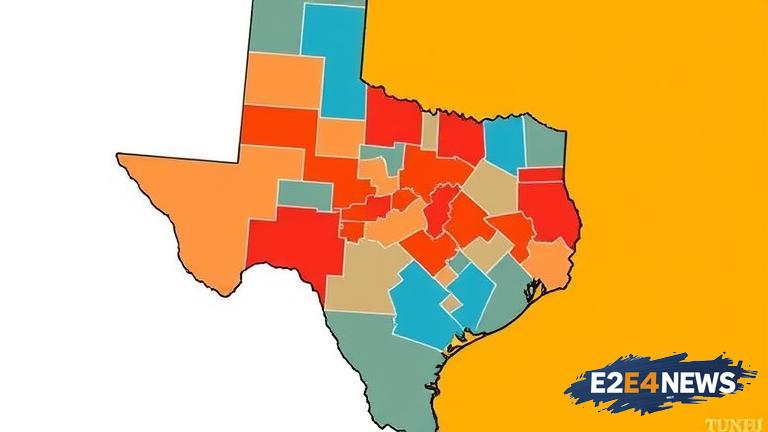Illinois officials have been vocal in their criticisms of Texas’s recent gerrymandering efforts, with many accusing the state of attempting to disenfranchise minority voters. However, some have pointed out that Illinois has its own history of partisan map-drawing, and that the state’s officials are being hypocritical in their criticisms. The controversy began when Texas released its new congressional maps, which were widely criticized for being heavily gerrymandered in favor of Republicans. Illinois officials, including Governor J.B. Pritzker and Senator Dick Durbin, were quick to condemn the maps, with Pritzker calling them ‘a blatant attempt to suppress the votes of minority communities.’ However, others have noted that Illinois has its own history of gerrymandering, with the state’s Democratic-controlled legislature having drawn maps that have been criticized for being unfair to Republicans. In 2011, the state’s legislature drew a map that was widely criticized for being gerrymandered in favor of Democrats, with one critic calling it ‘one of the most gerrymandered maps in the country.’ Despite this, Illinois officials have continued to criticize Texas’s gerrymandering efforts, with some accusing the state of attempting to undermine democracy. The controversy has sparked a wider debate about the role of gerrymandering in American politics, with many arguing that it is a major contributor to the country’s partisan divide. Others have argued that gerrymandering is a necessary evil, allowing parties to maintain control of certain districts and ensuring that their interests are represented. The issue is likely to continue to be a major point of contention in the coming months, with the 2022 midterm elections looming and control of Congress hanging in the balance. Illinois officials will likely continue to face criticism for their hypocrisy on the issue, and will need to navigate the complex and often contentious world of partisan map-drawing. The state’s history of gerrymandering has been well-documented, with many critics arguing that it has led to a lack of competitiveness in the state’s elections. In recent years, the state’s legislature has taken steps to address the issue, including the creation of an independent commission to draw the state’s congressional maps. However, the commission’s efforts have been met with skepticism by some, who argue that it is still too closely tied to the state’s partisan politics. The controversy over Texas’s gerrymandering efforts has also sparked a wider debate about the role of the federal government in regulating elections. Some have argued that the federal government should play a more active role in ensuring that states are not engaging in partisan map-drawing, while others have argued that this would be an overreach of federal power. The issue is likely to continue to be a major point of contention in the coming months, with the Supreme Court set to hear a major case on the issue. The case, which is set to be heard in the spring, will determine whether the federal government has the authority to regulate partisan gerrymandering. The decision is likely to have major implications for the future of American politics, and could potentially lead to a major shift in the way that congressional maps are drawn. In the meantime, Illinois officials will continue to face criticism for their hypocrisy on the issue, and will need to navigate the complex and often contentious world of partisan map-drawing. The state’s history of gerrymandering has been well-documented, and it will be interesting to see how the state’s officials respond to the criticism. One thing is certain, however: the issue of gerrymandering is not going away, and will continue to be a major point of contention in American politics for years to come. The controversy has also sparked a wider debate about the role of money in politics, with many arguing that the influence of big donors is a major contributor to the country’s partisan divide. Others have argued that the current system is corrupt and that there needs to be more transparency in terms of who is donating to political campaigns. The issue is likely to continue to be a major point of contention in the coming months, with the 2022 midterm elections looming and control of Congress hanging in the balance. Illinois officials will likely continue to face criticism for their hypocrisy on the issue, and will need to navigate the complex and often contentious world of partisan map-drawing. The state’s history of gerrymandering has been well-documented, and it will be interesting to see how the state’s officials respond to the criticism. The controversy over Texas’s gerrymandering efforts has also sparked a wider debate about the role of the federal government in regulating elections, with some arguing that the federal government should play a more active role in ensuring that states are not engaging in partisan map-drawing. The issue is likely to continue to be a major point of contention in the coming months, with the Supreme Court set to hear a major case on the issue. The decision is likely to have major implications for the future of American politics, and could potentially lead to a major shift in the way that congressional maps are drawn.





